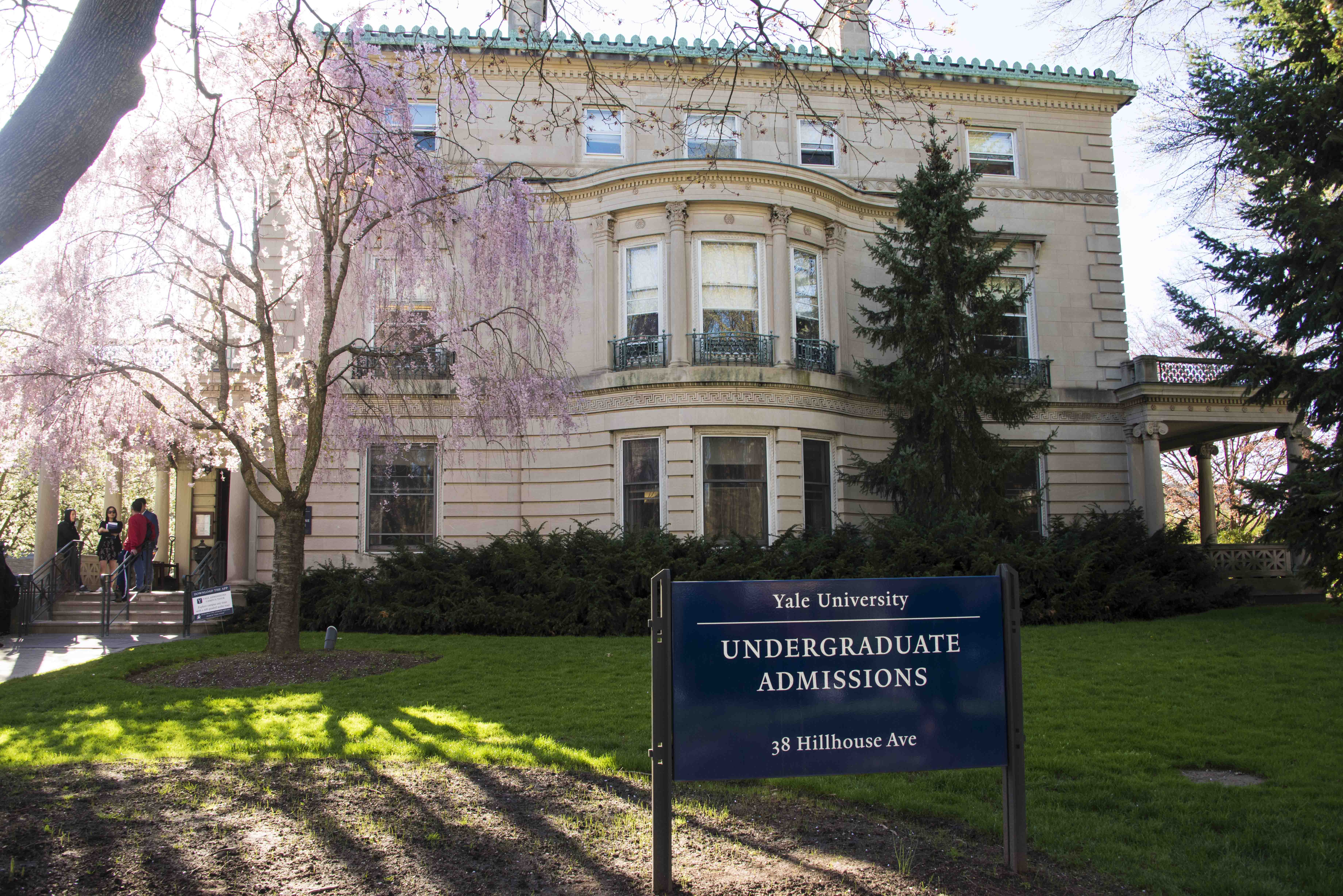
Madelyn Kumar
In light of the global coronavirus pandemic, Yale’s admissions office has moved toward greater leniency in application requirements for the upcoming admissions cycle.
Last week, Yale College announced its decision to go test-optional for its next set of applicants — suspending the requirement for applicants to submit either an SAT or ACT score, following the cancellation or delay of multiple standardized testing dates due to COVID-19. Applicants who are unable to complete an exam or choose not to report exam scores will not be disadvantaged in the selection process, according to Dean of Undergraduate Admissions and Financial Aid Jeremiah Quinlan.
“All high school seniors now have a straightforward option: Submit SAT or ACT scores if you wish,” Quinlan said. “I know that students will have many priorities when schools eventually reopen; I believe that completing standardized tests in time for an upcoming application deadline should not be among them.”
Prior to this update, Yale had already announced that reporting scores for both Advanced Placement tests and SAT Subject Tests would be optional for the upcoming admissions cycle.
This one-year policy comes after the College Board’s announcement on June 2 that the at-home SAT would not be available this fall and that the demand for fall testing spots was greater than capacity in areas most impacted by COVID-19.
The other seven Ivy League schools have also adopted test-optional policies for the next cycle.
“Like most Ivy League schools, Yale recognizes the disruption from the COVID-19 pandemic on the ability of applicants to test and did the right thing,” said Bob Schaeffer, the interim executive director of FairTest, an organization opposed to the use of standardized tests in college admissions. “The right first thing [was that] Yale both suspended the basic requirements and eliminated subjects from the admission process entirely. Both of those are excellent initiatives. Our hope would be that Yale would closely monitor the results, and see that test-optional admissions is superior in many ways than requiring those continue the policy down the line.”
According to Quinlan, going test-optional for the upcoming application cycle was the “simplest response and would accommodate the greatest number of prospective applicants in these extraordinary circumstances.”
The Office of Undergraduate Admissions will continue their “whole-person” review process, and prospective students’ community’s response to the outbreak — as well as any personal circumstances associated with it — will not negatively impact their chances of admission, Quinlan said.
“As with other parts of the application, standardized tests are considered as one component among many in a whole-person review process that relies on a committee of admissions officers, faculty members and college deans to make admissions decisions through discussion and deliberation,” Quinlan said. “This system allows for maximum flexibility when considering applicants from all backgrounds and experiences. Our upcoming admissions cycles will be no different.”
Yale’s test-optional policy will last only one year, despite many schools opting to go test-optional for all future admissions cycles. Groups such as FairTest continue to push for colleges to go entirely test-optional.
Joseph Soares, a professor of sociology at Wake Forest University, said that “many universities continue to use the test for very unworthy reasons.” One of these reasons, he said, is that tuition-dependent colleges use the tests as a disguise for keeping their applicant and admit pools disproportionately weighted toward youths from families from high incomes. Faculty complacency and a competitive advantage in the “U.S. News ratings game” serve as other reasons, Soares said.
But according to Quinlan, recent analysis from Yale’s Office of Institutional Research indicates that the SAT and the ACT are the “most predictive elements” of how a student will do academically at Yale after controlling for other variables, making the scores a useful tool when looking at 35,000 applicants from a wide range of contexts.
The admissions committee also “recognize[s] that there are significant differences in performance based on a student’s background,” Quinlan said. But these differences are looked at and taken into consideration through additional tools like the College Board’s Landscape, which is a tool that provides information regarding an applicant’s high school and neighborhood information.
“We continue to search tools to help us contextualize scores, and then are hyper-aware of the differences in scores based on background throughout our process and have been,” Quinlan said. “That is all the same and continues to be the same moving forward. In fact, we’re going to need to be doing that even more in light of the global pandemic.”
Last month, the University of California school system announced a test-optional policy for all future applicants.
Kelly Wei | kelly.wei@yale.edu







